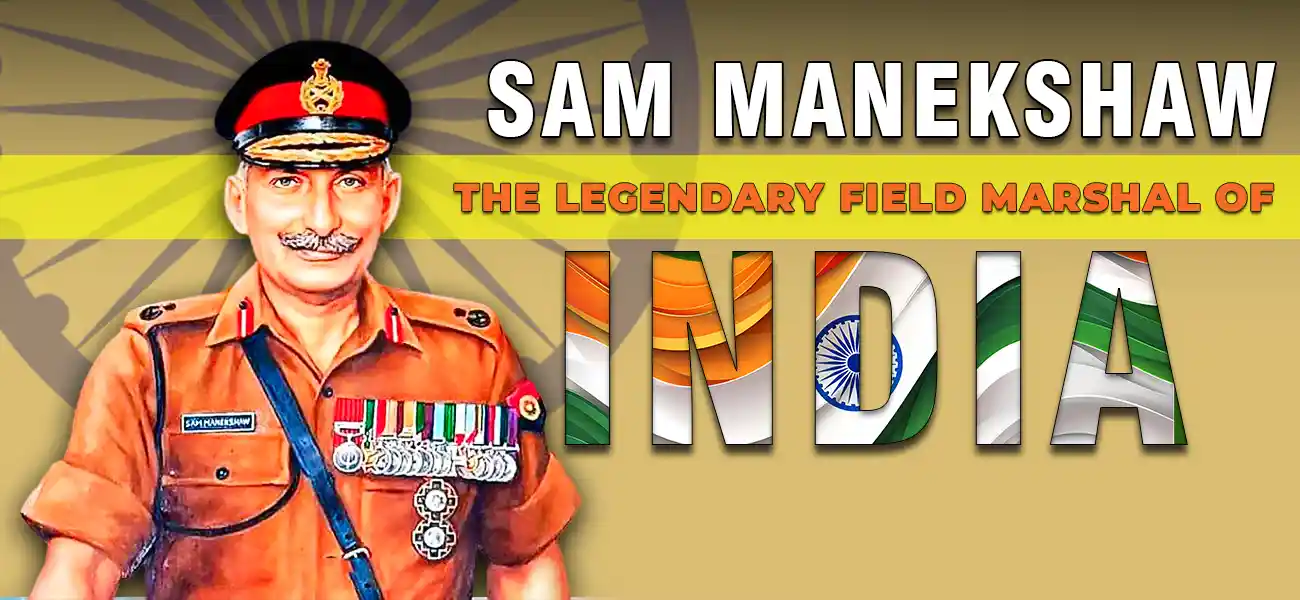Sam Manekshaw: The Legendary Field Marshal of India

Sam Hormusji Framji Jamshedji Manekshaw, fondly called Sam Bahadur, is a name that rings pride and reverence in the annals of Indian military history. As the first Indian Field Marshal, Manekshaw’s distinguished career and unprecedented leadership commanded his presence to be a national hero and an icon in the Indian Armed Forces.
Early Life and Career Beginnings
Born on April 3, 1914, in Amritsar, Punjab, Sam Manekshaw was a son of a doctor. He joined the Indian Military Academy in Dehradun, which was part of its first batch in the year 1932. After joining the British Indian Army in 1934, Sam quickly marked his career with exceptional prowess and gallantry.
Bravery in World War II
Manekshaw’s first taste of combat came during World War II. Serving in Burma, he displayed extraordinary bravery despite being gravely injured by machine-gun fire. His resilience earned him recognition and established him as a leader who led from the front. His actions during this period were a testament to his unwavering commitment to duty and his troops.
Rise Through the Ranks
Manekshaw played pivotal roles in the shaping of the Indian Army after independence. He held key positions, including commanding battalions and leading operations during critical junctures such as the 1947-48 Jammu & Kashmir conflict and the 1962 Sino-Indian War. His strategic acumen and ability to boost morale among his troops were widely acknowledged.
Manekshaw was appointed Chief of the Army Staff (COAS) in 1969. He took over at a time when the nation was facing severe internal and external challenges, and he responded to these challenges with unmatched resolve and vision.
The 1971 Indo-Pak War: A Defining Moment
Leadership of Field Marshal Sam Manekshaw during the 1971 Indo-Pak war is one of the most celebrated chapters in Indian military history. With meticulous planning and strategic brilliance, he led the Indian Army to a decisive victory, resulting in the creation of Bangladesh. His ability to coordinate between political leadership and military strategy ensured India’s success in one of its most significant wars.
His famous assurance to Prime Minister Indira Gandhi, “I guarantee you 100% victory,” reflects his confidence and capability. The war not only established India as a regional power but also earned Manekshaw a place among the greatest military leaders of the 20th century.
Legacy and Honors
As recognition for his outstanding service, Sam Manekshaw was made Field Marshal in 1973. He became the first officer from the Indian Army to attain that rank. Leadership principles, integrity, and dedication are attributes he has left for generations of soldiers and civilians to emulate.
Sam Manekshaw died on June 27, 2008, but his legacy remains as a symbol of patriotism and military excellence. His wit, charm, and unwavering commitment to the nation remain etched in the hearts of millions.
Lessons from Sam Manekshaw’s Life
- Leadership: True leadership is about inspiring and empowering others. Manekshaw’s ability to lead from the front and make tough decisions under pressure is a lesson for all.
- Integrity: His honesty and dedication to his responsibilities set a benchmark for personal and professional ethics.
- Strategic Thinking: Manekshaw’s meticulous planning during the 1971 war highlights the importance of preparation and foresight in achieving success.
Field Marshal Sam Manekshaw’s life is a testament to courage, leadership, and unwavering dedication to the nation. At the Indian Defence Institute, we honor his memory and strive to inspire future generations with his extraordinary legacy. Sam Bahadur’s story is not just about military triumphs but also about the spirit of service and sacrifice for the motherland.
For more insightful articles on Indian military history and heroes, stay tuned to Indian Defence Institute. Let’s celebrate the unsung stories of valor and dedication that continue to shape our nation.
